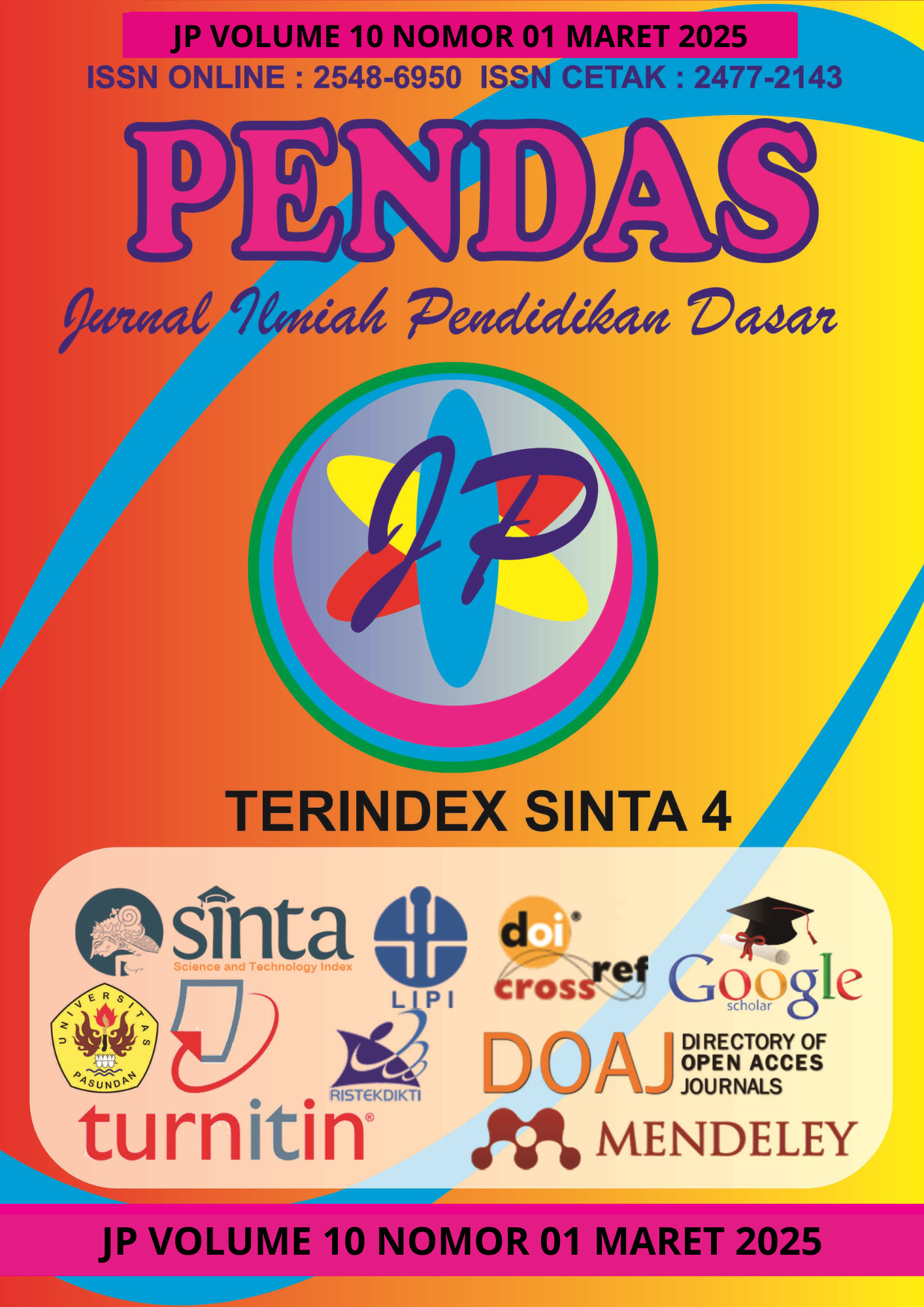PENGARUH MODEL PBL BERBASIS MULTILITERASI TERHADAP PEMAHAMAN SISWA LEWAT ISI BACAAN PADA MATA PELAJARAN BAHASA INDONESIA KELAS V SD
DOI:
https://doi.org/10.23969/jp.v10i01.23010Keywords:
Multiliteracy-based PBL Model, Student UnderstandingAbstract
This research was carried out with the primary goal of identifying a notable
impact stemming from the utilization of problem-based learning models that are
grounded in multiliteracy. Within the framework of multiliteracy-based problem-
based learning, students are actively encouraged to tackle problems by
employing a diverse set of literacy proficiencies, encompassing reading, writing,
listening, and speaking. The methodological approach adopted for this study
involved a quasi-experimental design, employing both pre-tests and post-tests
administered to students in both the control and experimental groups; the
participants in this research consisted of students from grades V-A and V-B at
SDN Dukuh Menanggal I/424 Surabaya. The collection of research data was
achieved through the administration of pre-tests and post-tests, which were
completed by the students themselves. The data analysis techniques
implemented incorporated essential prerequisite tests, which included normality
tests, homogeneity tests, as well as hypothesis tests. The findings of the study
indicated that the implementation of a multiliteracy-based problem-based
learning model does, in fact, exert an influence on students' comprehension of
reading content. The application of this pedagogical model has the potential to
enhance students' understanding of the material they read, particularly in areas
such as reading comprehension, analytical skills, and the ability to critically
evaluate information. Furthermore, the deployment of this model is capable of
optimizing students' competencies when it comes to articulating opinions, ideas,
and concepts in a manner that is both more organized and structured.
Keywords: Multiliteracy-based PBL Model, Student Understanding
Downloads
References
Cahyani, H. D., Hadiyanti, A. H. D., & Saptoro, A. (2021). Peningkatan Sikap Kedisiplinan dan Kemampuan Berpikir Kritis Siswa dengan Penerapan Model Pembelajaran Problem Based Learning. Edukatif : Jurnal Ilmu Pendidikan, 3(3), 919–927. https://doi.org/10.31004/edukatif.v3i3.472
Pristiwanti, D., Badariah, B., & Hidayat, S. (2022). Jurnal Pendidikan dan Konseling, 4.
Indra Dewi, F., Suntini, S., & Hamidah, I. (2023). Pelatihan Multiliterasi Guna Meningkatkan Motivasi Minat Baca Siswa SDN 2 Tugumulya. Jurnal Pengabdian Masyarakat Indonesia, 3(1), 127–132. https://doi.org/10.52436/1.jpmi.938
Kusumawati, I. T., Soebagyo, J., & Nuriadin, I. (2022). Studi Kepustakaan Kemampuan Berpikir Kritis Dengan Penerapan Model PBL Pada Pendekatan Teori Konstruktivisme. JURNAL MathEdu, 5(1), 13–18.
Nugraha, D., & Octavianah, D. (2020). Diskursus Literasi Abad 21 di Indonesia. Jurnal Pendidikan Edutama, 7(1), 107. https://doi.org/10.30734/jpe.v7i1.789
Sihombing. (2023). Meningkatkan Keterlibatan Mahasiswa Lewat Pembelajaran Kolaboratif Berbasis Proyek: Studi Kasus di Pendidikan Tinggi Indonesia.
Downloads
Published
Issue
Section
License
Copyright (c) 2025 Pendas : Jurnal Ilmiah Pendidikan Dasar

This work is licensed under a Creative Commons Attribution 4.0 International License.














































